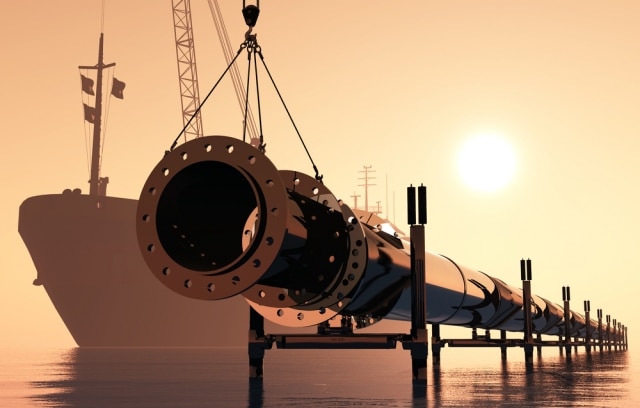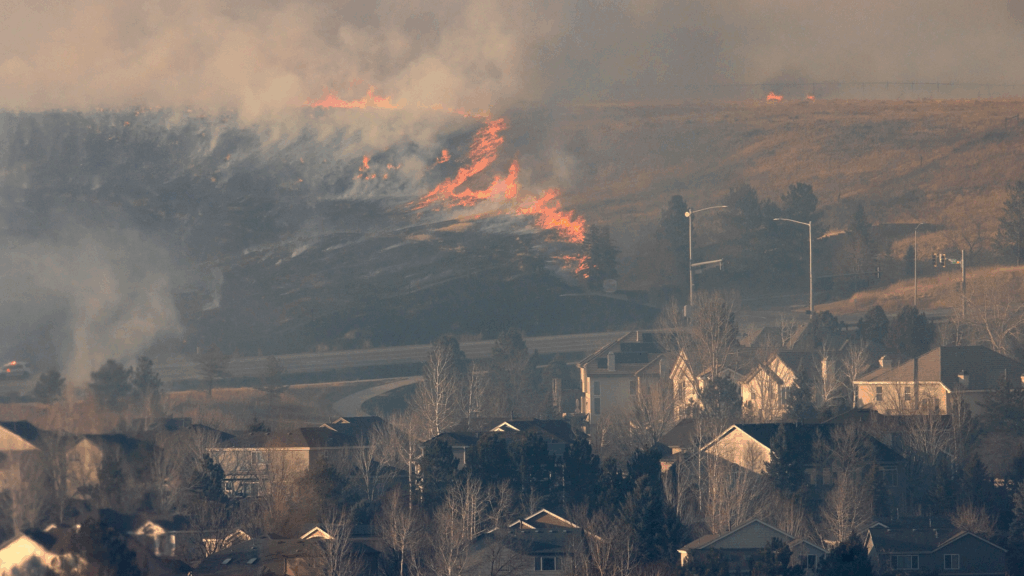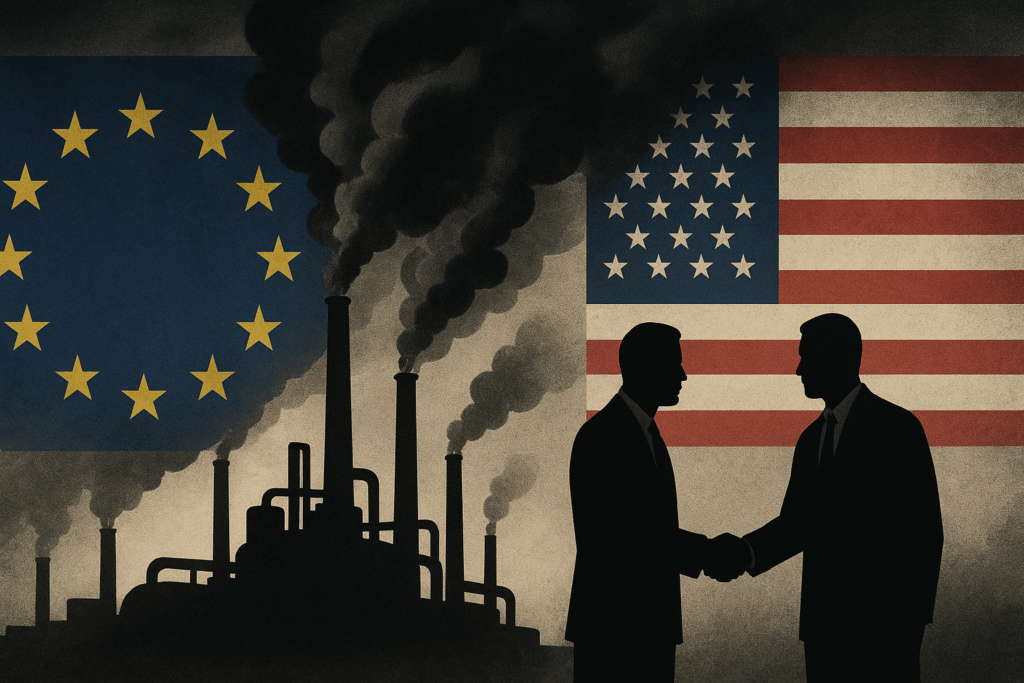In a quiet move in the last days of 2014 that involved zero public debate, the Obama administration gave a big gift to the oil industry by allowing the export of light crude oil. This change by the administration stands to make the industry a few extra billion dollars per year by allowing them to sell crude oil on the international market where it gets a higher price than if it is sold to U.S. refineries.
So what bill was passed at the last minute of 2014 overturning the 40-year-old crude oil export ban and allowing companies to now export fracked crude oil? None.
As The Hill reported, sources “familiar with the matter” don’t even consider this a “change in policy” and thus no legislation is required.
No policy change, no legislation needed. The only thing that has changed is that the oil industry can now export unlimited amounts of crude oil, much of it currently procured via hydraulic fracturing.
So how does an industry overturn longstanding legislation that was designed to protect the U.S. economy from fluctuations in the global oil market? First, there are the normal industry channels of lobbying and advertising over the past year to influence public opinion and get the politicians to do their bidding. But that process is expected to take significantly more time and money to result in officially ending the crude oil export ban.
So if you are the oil industry, you innovate. You call the oil you are producing condensate, get the regulators at the little known Bureau of Industry and Security to agree to not define what condensate actually is and then have them tell you that you as an industry are free to “self classify” your oil as condensate and export it.
Problem solved. Billions in profits made. Politicians provided with cover. And then you let sources “familiar with the matter” tell Reuters that this has been “carefully couched” as an “informal suggestion.”
From Reuters:
“An official familiar with the law said the agency’s discussions did not represent a change in policy since self-classification is allowed under U.S. export controls and is a routine, common practice for the majority of exports.
Yet the message, though carefully couched as an informal suggestion, marks the first sign that the administration is becoming comfortable about allowing companies to work around the nation’s four-decades-old ban on exporting untreated crude oil.”
Ed Morse, global head of commodities research at Citigroup in New York, summarized the situation in a research note, “While government officials have gone out of their way to indicate there is no change in policy, in practice this long-awaited move can open up the floodgates to substantial increases in exports by end-2015.”
The reason government officials had to go out of their way to say there was no change in policy and this needed to be “carefully couched” was summed up well by Stephen Myrow, a former U.S. treasury official who explained it to The Daily Star.
“On one hand, they want to alleviate some of the pressure that could result in less oil production,” Myrow said. “On the other hand, they don’t want to upset their environmentalist base by looking like they are making a major policy shift on the crude export ban.”
Keeping the oil industry and the environmentalists happy. Win-win for the Obama administration.
And thus a large amount of the oil produced in the U.S. will now be exported to Asia and other markets where it is worth more. In October, one executive told FuelFix this oil could be sold for as much as $15-$30 a barrel more on the world markets.
That executive estimated that the Eagle Ford shale formation in Texas could be producing as much as 1,000,000 barrels per day of “condensate” that can now be exported.
One million barrels per day, valued at an extra $15 to $30 a barrel. That is a $15 to $30 million daily gift to the oil industry. You can buy a lot of politicians with that kind of scratch.
And due to the lack of any specifications about what qualifies as condensate, industry analysts have noted that it is now possible to “process” any crude oil via stabilization and it suddenly becomes legal to export it.
Kevin Book, an analyst with ClearView Energy Partners in Washington, D.C. told FuelFix: “What [the Bureau of Industry and Security] has done seems to have gone beyond processed condensate, although it isn’t clear how much beyond.”
RBN Energy’s analysis also sees broad applications for the new rule. “In theory there is nothing to stop producers using stabilizers to ‘process’ crude prior to export.”
So while initially this opportunity may result in an extra $5-$10 billion a year for the industry, there is plenty of upside potential ahead.
Even though the oil industry is currently dealing with a crash in prices and a supply glut, on Monday Platts reported there was immediate interest in U.S. condensate according to a senior refining official in South Korea who said, “We want to import more volume of US condensate as part of diversifying supply sources heavily dependent on the Middle East.”
The floodgates have been opened.
Just Stabilize It and Go
The whole basis for this handout to oil companies with this new “informal suggestion” is that industry claims this crude oil isn’t really crude oil because it has been processed. And more specifically it has been stabilized.
Stabilization is a process that removes the highly volatile natural gas liquids (NGLs) from crude oil and leaves behind less explosive crude oil.
Following what happened with the unstabilized oil in Lac-Megantic and other Bakken oil train accidents, activists have been demanding the industry stabilize oil prior to transporting it by train to remove the risk of explosions.
However, stabilization costs money. Industry won’t do it if they don’t have to, and regulators have told them they don’t have to, so they continue to ship the volatile crude oil by rail.
In contrast, the industry has long chosen to stabilize oil before shipping it by pipeline. And once it is stabilized, they still call it crude oil.
There are no regulations requiring oil to be stabilized prior to entering a pipeline. The industry does it because they don’t want their pipelines blowing up and costing costly repairs.
Interestingly enough, in a July 2014 Platts article discussing the potential of stabilizing the Bakken crude oil to make it safe to transport by rail, it was noted that if the export ban was lifted it would serve as a “de facto stabilization requirement.”
Because the U.S. oil industry isn’t going to put unstabilized fracked oil onto expensive ocean tankers. A few exploding train cars and 47 dead Canadians is one thing. An exploding oil tanker is a problem of a different scale for the industry’s bank accounts. Loaded oil tankers are worth a lot of money. The tanker the Somali pirates took was worth $100 million.
One analyst explained to Platts what would happen regarding stabilization if the export ban was lifted:
“You could stabilize and go. You’d still have to put it into rail cars and ship it to the coast, but at least you’d be selling it at a global market price instead of at the WTI discount. Who wouldn’t do that? Everybody would do it.”
And now everyone will do it. They will stabilize their oil. And it will be exported because the U.S. government won’t consider it crude oil because it has been stabilized.
Even beyond the relatively simple stabilization process, companies like Phillips 66 are investing in more significant infrastructure dedicated to exporting condensate. Kinder Morgan is also expected to have two Gulf Coast condensate processing facilities online this month.
So, as the rules stand you can’t export crude oil as per current U.S. law. And you’d be crazy to export unstabilized fracked crude oil because you might blow up a $100 million investment.
But if you stabilize your fracked crude oil, you are now free to export it. See how that works?
But wait, there’s more!
A Yahoo Finance headline sums up the additional implications of this recent change in FAQs.
Obama move on U.S. oil exports paves way for Canadian crude, too
When handing out gifts to the North American oil industry these days, you want to make sure to include Canadian tar sands producers too. So how does this new “informal suggestion” help the tar sands industry? Several different ways that involve exporting Canadian tar sands oil from U.S. ports.
First, in the new Bureau of Industry and Security FAQs, it states, “The Regulations do not specify any de minimis amount of U.S.-origin oil that can be co-mingled with the foreign oil.”
Reuters explains what this means in real terms:
…clarification that “a minimum amount of mixing” between exportable foreign crude and restricted domestic crude may be allowed, a note likely making it easier to ship Canadian crude through U.S. pipelines and ports.
Additionally, the new rule now allows this new exported U.S. light crude oil (that is no longer called crude, but condensate) to be blended with tar sands oil resulting in a more valuable product. It is still considered Canadian and now can be shipped through the U.S. and exported as crude oil because technically now it has no U.S. crude oil in it.
In other words, there is no rule against exporting Canadian crude even if it now is technically mixed with a lot of U.S. light crude that has been stabilized and self-classified as condensate by the industry.
Drill Baby Drill – Opening the Door for More
So with no public discussion or environmental review, the Obama administration just allowed the oil industry to make the fracking of U.S. oil more profitable while also making it easier for the industry to export Canadian tar sands oil from U.S. ports.
And the general consensus in opinion on this move is that it is simply paving the way to completely get rid of the crude oil export ban.
With that in mind, American Petroleum Institute president Jack Gerard was hard at work this week promoting this idea. Gerard called the export ban “a burdensome relic of America’s era of energy scarcity.” Burdensome to the oil industry, that is.
Meanwhile, Obama’s good friend Larry Summers also wasted no time in getting out to shill for an end to the crude oil export ban this week. He told Bloomberg, “It is folly geopolitically and economically not to take advantage of the opportunity.”
Larry Summers and the industry will keep working and spending to get actual legislation to lift the crude oil export ban.
Until then, the global oil markets will be dealing with the reality that this ban has basically been lifted as the result of small changes to an FAQ section on one web page of a little-known government agency.
The “informal suggestion” that rocked the world.
Image credit: Construction of a pipeline into the sea via Shutterstock.
Subscribe to our newsletter
Stay up to date with DeSmog news and alerts






